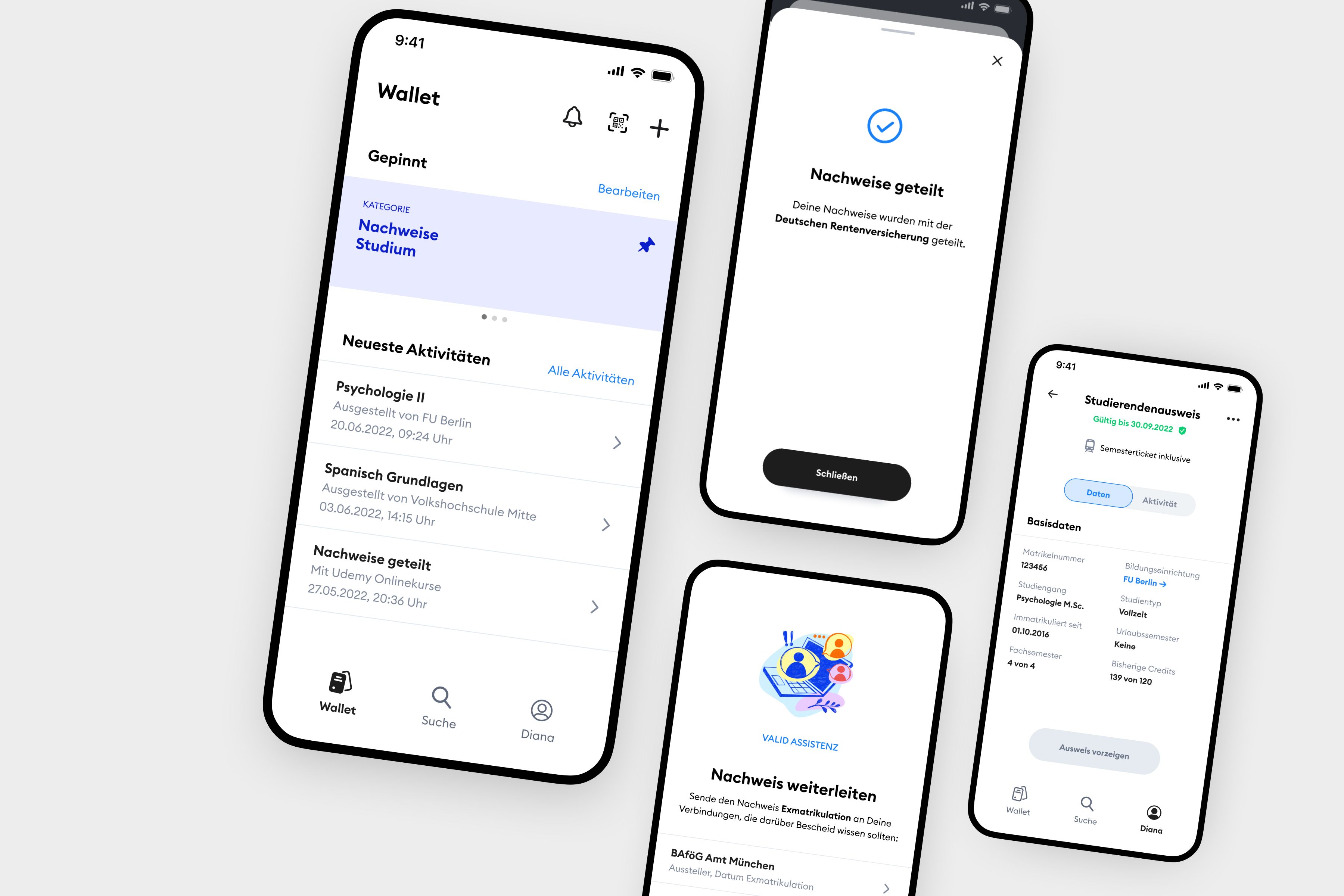
Designers
Marielle Lexow
Year
2024
Category
New Talent
Country
Germany
School
HAWK University of Applied Sciences and Arts
Teacher
Stefan Wölwer, Holger Fricke

Three questions for the project team
What was the particular challenge of the project from a UX point of view?
The topic of digital identity required a very intensive research phase compared to previous design projects. My aim in this project was to design an experience of digital services that is both user-friendly and reflects future user needs and trends. At the same time, the prototype had to meet realistic technical requirements. It's in the nature of the topic that a certain degree of technical understanding is required, as decentralization, with all that it involves, is the foundation of the concept and has a strong impact on the design.
What was your personal highlight in the development process? Was there an aha!-moment, was there a low point?
It gave me a lot of structure to combine the process of Future Thinking with Design Thinking and applying new methods to navigate the complexity towards the prototype. In addition, the tester community I set up for the project was a very valuable point of contact, which I could rely on at any time for user research, testing and evaluation. It was quite challenging at times to gain a sense of how much research is enough to build a solid design concept. This project has allowed me to learn and develop a lot and it was really fun to work on a topic that is certainly relevant and to contribute to it with my design expertise.
Where do you see yourself and the project in the next five years?
As a designer, this project has sparked my fascination for designing the future even more and it has inspired me a lot to introduce Future Thinking methods in my daily work. I'm quite optimistic about the realization of this design fiction, which is no longer so fictional. In the future, people should have control over their data and credentials, because it doesn't have to remain the case that companies or other stakeholders have more information about us than they need. New concepts such as self-sovereign identity support this idea and could disrupt today's digital identity management. No one can predict the future, but we can use the potential to create the transformation with a great user experience. So what are we waiting for?


